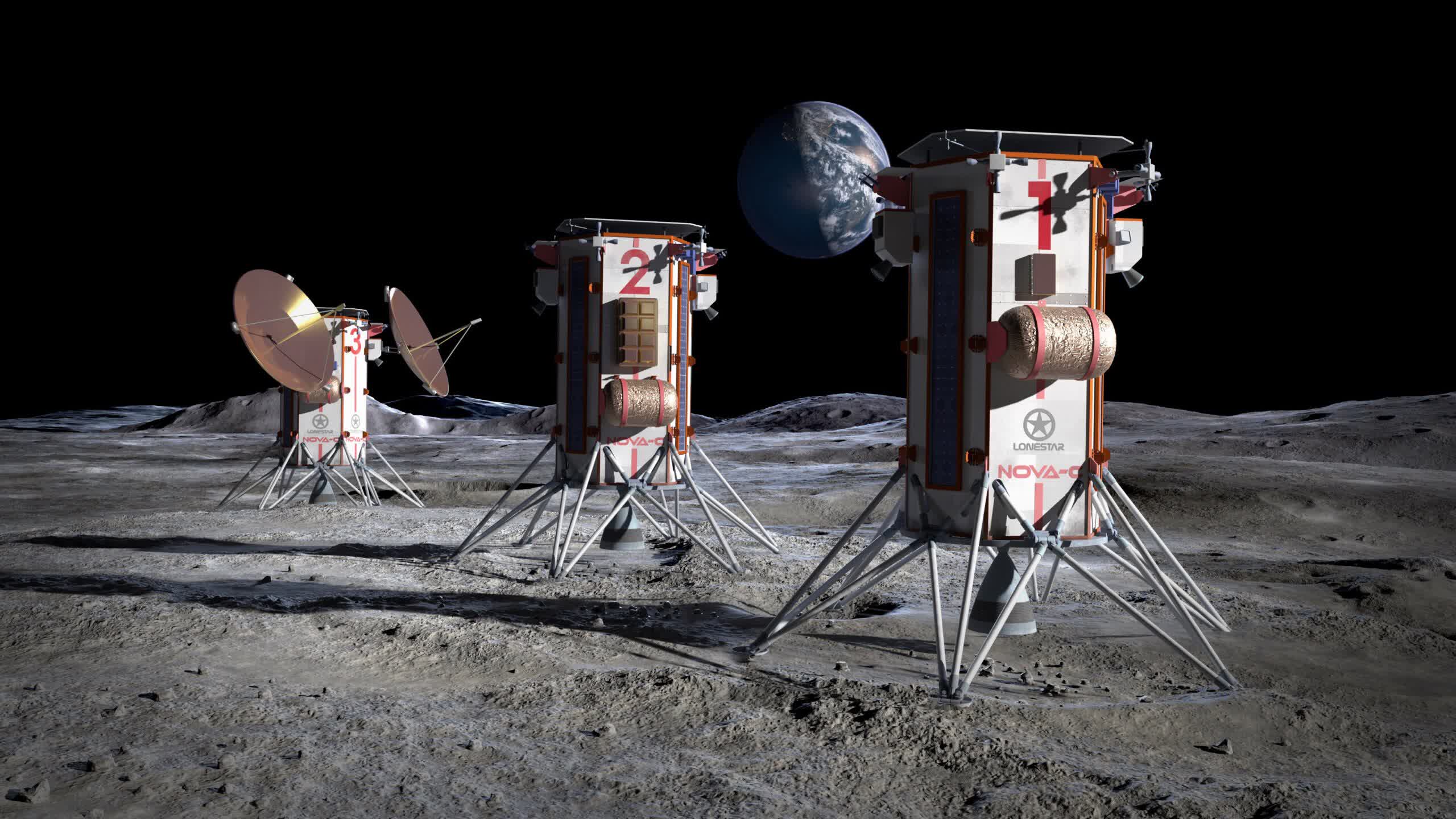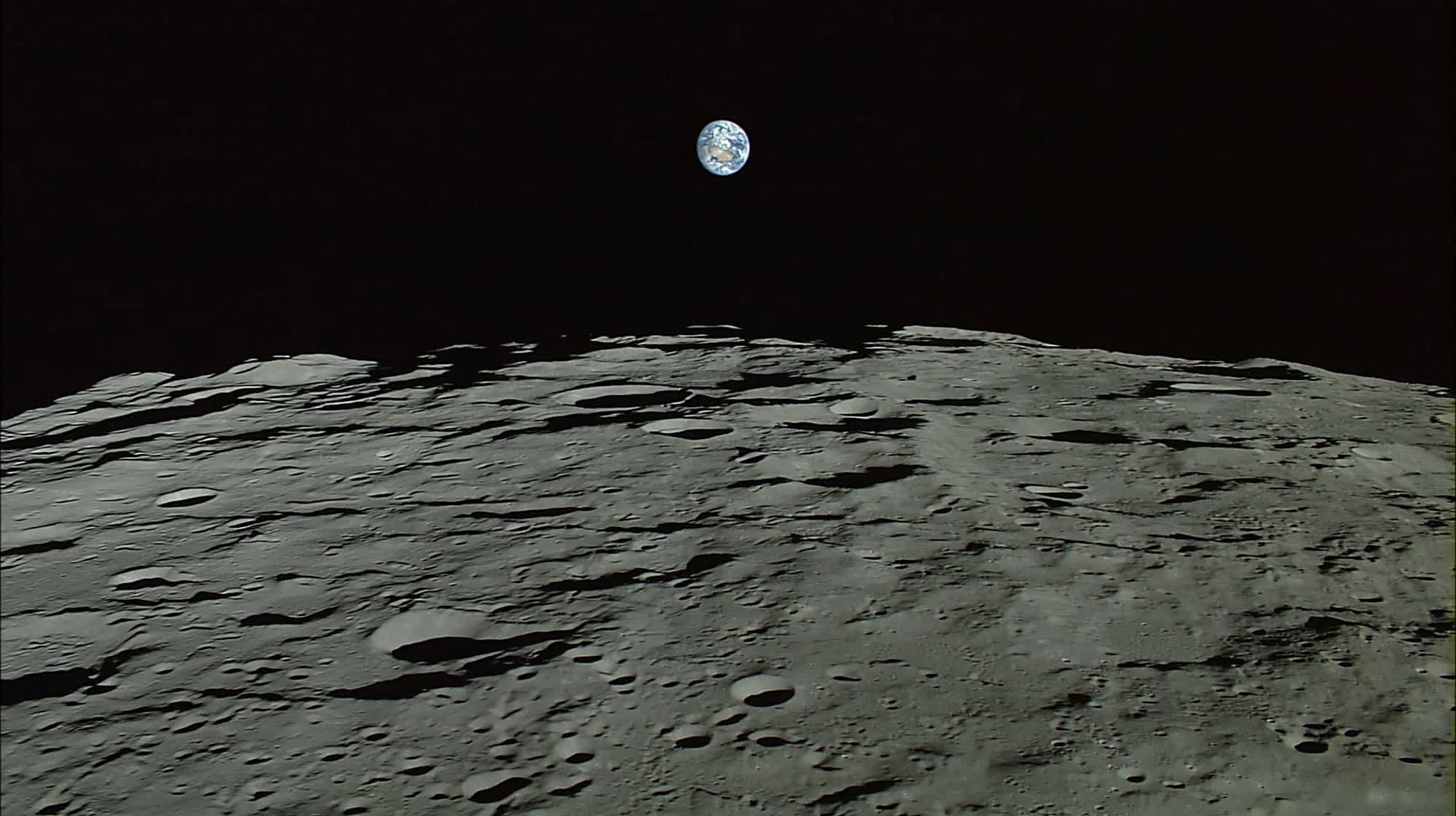What just happened? Lonestar Data Holdings is a Florida-based startup that wants to preserve Earth's atmosphere by bringing data centers and edge computing to the Moon. The company has just announced its latest funding round, and is now ready to send the first experimental data storage unit to space.
Lonestar has closed its round of seed funding by collecting $5 million, and the company is now ready to start a series of missions to bring functioning data centers to the most remote location ever: the Moon's surface. Lonestar will work with Huston-based company Intuitive Machines, which was already awarded a contract by NASA to deliver technology demonstrations to the Moon as a part of the Artemis program.
In 2021, Lonestar ran a first test with its data center in space - or better still, on the International Space Station. The new plan is to send a small data box to the Moon with Intuitive Machines's second lunar mission (IM-2), while launch of the IM-1 mission is expected for June.
The miniature data center aboard the IM-2 lander will have a capacity of 16 terabytes in a 1kg payload, Lonestar founder Chris Stott said in April 2022. The first lunar data centers would provide a backup solution for (very) remote data storage and disaster recovery, while assisting commercial and private ventures working to establish a lunar presence.

Stott previously said data is "the greatest currency created by the human race," as we rely on it for nearly everything we do here on Earth. But data has become "too important" to be stored solely in Earth's "ever more fragile biosphere." Earth's largest satellite would represent the ideal place to "safely store" our data-based future.
The first Lonestar data center to be sent to the Moon will rely on the IM-2 lander for its power and communication needs. Any subsequent data center sent up will have its own power and communication facilities, and it could be deployed on the lunar surface by the end of 2026. The IM-2 mission is expected to last between 11 and 14 days.
Brad Harrison, founder and managing partner at the company which led the Lonestar funding round (Scout Ventures), said that expanding the world's economy to the Moon is the "next whitespace in the New Space Economy." Data security and storage are a necessary part of the next-gen lunar exploration, and Lonestar clearly wants to play a pivotal role in this otherworldly pioneering frontier.
